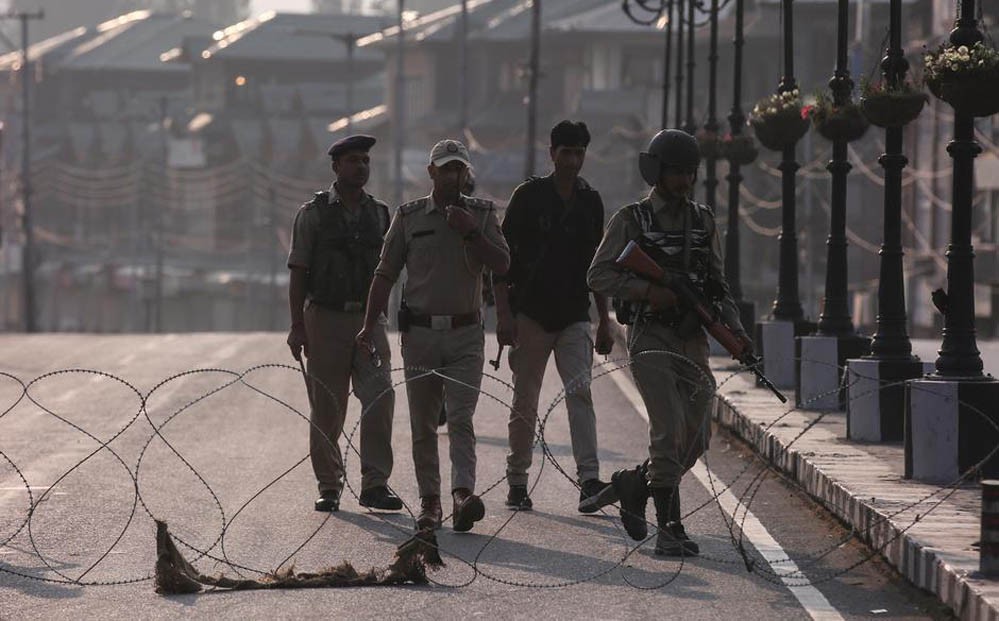

Dear All,
What do you call making a territory part of your own country? An annexation? An occupation? An invasion?
Whatever you want to call it, it’s what India did last week to the disputed territory the world knows as Indian-administered Kashmir. India revoked its special constitutional status and made it a part of India. The reaction from inside Kashmir was blacked out by simply cutting off all telecommunications there. Even taking photographs was forbidden. The Kashmiri diaspora (and the world) has no idea what’s actually happening to their homes and families in Kashmir.
The surprise has been the muted world reaction: India’s move was reported widely but outrage and urgency were strangely absent – even in Pakistan where the PM’s words seemed to show him strangely resigned to the fact. Some observers even speculated that Pakistan’s civil and military leadership, along with the US president, actually had prior knowledge of the Modi government’s action. They argue that this enables Pakistan to formally declare the part of Kashmir they administer as officially part of Pakistan, and it also rules out the possibility of a united and independent Kashmir that might want a life separate and free from both India and Pakistan.
The Pakistani PM also restated his view that this was an issue in which the American president should ‘mediate’. Some analysts view India’s move as being favourable for Pakistan as it facilitates the closure of all programmes linked to Kashmiri ‘jehadis’ , thereby helping it to comply with various international regulations. Whether this reading of the situation is ridiculously far-fetched or not, we won’t know for some time but what we can say for sure is that the longer you take to resolve a territorial dispute, the easier it becomes to eventually take over that territory.
Take the example of Kashmir: despite the Indian aggression in 1947 and the subsequent UN resolutions regarding this, nothing was done. The divided region was allowed to be administered by the two neighbouring governments for over seven decades (that’s almost a century). Of course things change in 70 years: links to countries grow, a history of resistance in a region grows and the attitudes of the centre hardens – a narrative of ingratitude and ‘traitorous’ behaviour is developed and propagated. The conflict and impasse persists for so long that for some quarters decisive action, when it comes, is something of a relief….
Palestine is a case in point: Israel still holds the Palestinian territories that it invaded and occupied in 1967. It has settled the lands and constructed illegal settlements which it insists is fine. No action has been taken about this internationally, despite various polite reminders that it is illegal, and the plight of the Palestinians is no longer much discussed anywhere. This illustrates the fact that the longer you let disputes like this drag on, the greater the advantage to the occupier.
In the case of the Kashmir dispute world leaders and the media have often waxed hysterical about the possibility of ‘two regional nuclear powers going to war.’ But does this now seem more or less likely to happen?
Would Pakistan want to risk making any kind of martial threat at this point or even indulging in war games? Would there be any point to this apart from perhaps providing a diversion from the country’s deteriorating economic situation?
India’s revocation of Article 370, may or may not, be declared illegal but that will not automatically change the political or social dynamic. The rest of world meanwhile seems to be fairly unconcerned about what happens to the Kashmiris as most countries are taking a pragmatic approach to the matter because in an age where might is right and truth is lies, occupation is what really matters. The United Nations and the International Court of Justice might deem such occupations illegal and refer to the relevant aggressor as an ‘occupying force’ but by allowing the situation to persist they actually help to normalise it.
Best wishes